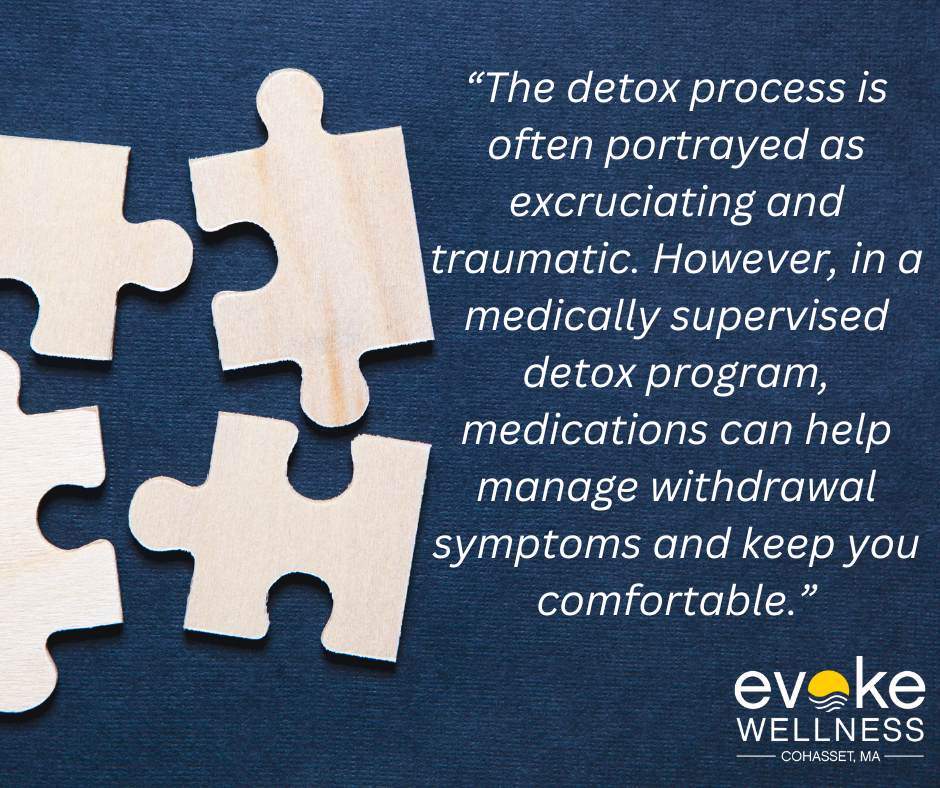Embarking on the journey to overcome addiction can be daunting, especially when you’re bombarded with conflicting information about detox. You’ve likely heard various myths and misconceptions about the process, leaving you uncertain about what to expect. In this article, we’ll debunk common myths surrounding drug and alcohol detox, shedding light on the realities of medical detox and acute detox. By separating fact from fiction, you’ll gain a clearer understanding of the detoxification process and feel more empowered to take the first step towards recovery. Let’s dive into the truth behind these pervasive myths and equip you with the knowledge you need to make informed decisions about your health and well-being.
Call us at (617) 917-3485 today or reach out online.
Understanding Detox: Medical vs. Acute
Medical Detox
- Medically supervised detox for drug or alcohol dependence
- Provides a safe, controlled environment to manage withdrawal symptoms
- May involve medication to ease cravings and discomfort
- Around-the-clock care and monitoring by medical professionals
Acute Detox
- Abrupt cessation of substance use without medical supervision
- Can be dangerous and life-threatening for severe addictions
- High risk of relapse due to intense withdrawal symptoms
- No medication or professional support to manage complications
The key distinction lies in medical oversight and management of withdrawal. Medical detox involves 24/7 monitoring in a specialized facility, with medications prescribed as needed to alleviate symptoms safely. Acute detox carries serious risks by attempting to “tough it out” alone without proper care.
Attempting detox without professional help can have devastating consequences, especially for long-term, heavy substance abuse. Always consult an addiction specialist to plan a medically supervised detox tailored to your needs. With the right support, you can start recovery on a firm, healthy foundation.
The Truth About Flushing Toxins
What’s the Hype About?
You’ve likely heard claims of “detox teas” and fad diets promising to flush toxins from your body. But are these methods truly effective or safe? Let’s explore the realities behind detoxification.
Body’s Natural Process
Your body is incredibly efficient at eliminating waste and toxins through the liver, kidneys, digestive system, and skin. No special product is required – proper hydration, nutrition, and rest allow these systems to work optimally.
“Detox” Product Risks
Many commercial detox products make unsubstantiated claims and can potentially be unsafe or ineffective. Some laxatives, for example, may cause dehydration, electrolyte imbalances, and dependency when overused.
Healthier Approach
Rather than quick fixes, focus on sustainable lifestyle habits. Eating a balanced diet with fiber, staying hydrated, exercising, and managing stress naturally support your body’s detoxification pathways. Be wary of extreme regimens that drastically restrict nutrients.
In summary, your body is designed to eliminate toxins efficiently through its own processes. Drastic measures aren’t required – simply nourish your body through balanced habits for optimal health.
The Role of Hydration in Detox
It’s Not Just About Water
Staying hydrated is crucial during detox, but it’s about more than just drinking water. Your body needs a steady supply of electrolytes like sodium, potassium and magnesium to function properly. Many “detox” drinks claim to flush out toxins, but lack the nutrients your body craves.
Replenishing Lost Fluids
Withdrawal symptoms like vomiting, diarrhea and excessive sweating can lead to dehydration and electrolyte imbalances. Sipping electrolyte-rich beverages like sports drinks or coconut water helps replenish what’s lost. Just avoid sugary drinks that provide empty calories.
When to Seek Medical Help
Severe dehydration is dangerous and requires IV fluids. Signs include dizziness, rapid heartbeat, sunken eyes and little to no urination. Don’t try to detox alone if you have a history of severe alcohol or drug addiction. Medically-supervised detox keeps you safe and hydrated.
Detox: Is It Good or Bad for You?
The Pros and Cons
While detoxing aims to remove toxins and reset your body, there are potential pros and cons to consider. On one hand, detox diets may provide a quick “reboot” and help you develop healthier eating habits. However, many experts warn that extreme detox methods can deprive your body of essential nutrients and disrupt your metabolism.
Addressing Misconceptions
A common myth is that detox diets can “flush” out years of unhealthy living. The reality is your body is designed to naturally eliminate toxins through the liver, kidneys and digestive system without extreme measures. Another falsehood is that you need harsh laxatives or fasts to detox – these can actually be counterproductive and lead to dehydration, fatigue or nutrient deficiencies.
When Detox Is Necessary
There are cases when medical detox is crucial, such as overcoming substance abuse disorders. Under medical supervision, the detox process helps manage withdrawal safely and prevent life-threatening complications. But for general health, gradual lifestyle changes like reducing processed foods and increasing water intake may be a safer, sustainable approach.
Detoxing from Drugs and Alcohol: Separating Fact from Fiction
Myth: Detox is Unbearable
The detox process is often portrayed as excruciating and traumatic. However, in a medically supervised detox program, medications can help manage withdrawal symptoms and keep you comfortable. Professional support also provides counseling to help you cope.
Reality: Medical Detox is Essential
Attempting detox alone is extremely risky and often unsuccessful long-term. A comprehensive medical detox allows your body to safely eliminate substances under 24/7 clinical monitoring. This acute phase prepares you for the next steps of addiction treatment.
Myth: Detox Alone is Enough
Some mistakenly believe detox by itself constitutes full treatment for substance abuse disorders. While essential, detox only addresses physical dependence. Follow-up therapy and counseling are crucial for addressing the psychological aspects and preventing relapse.
Reality: Individualized Care is Key
There is no one-size-fits-all detox program. Accredited rehab centers customize medical detox protocols based on your unique needs – accounting for factors like the substance(s) used, length and severity of addiction, co-occurring mental health issues, and more. This comprehensive, evidence-based approach gives you the best chance at lasting recovery.
Conclusion
As you’ve learned, many myths surround drug and alcohol detox. Remember, detoxification is just the first step on the road to lasting sobriety. While challenging, it opens the door to a healthier future free from substance dependence. If you or a loved one are considering detox, consult a medical professional to determine the safest, most effective approach for your unique situation. With proper care and support, you can successfully navigate detox and lay the foundation for long-term recovery.
Begin Your Journey with Evoke Wellness at Cohasset
If you or a loved one is considering treatment, Evoke Wellness at Cohasset invites you to contact us. Our compassionate team is ready to answer your questions, discuss your needs, and help you take the first steps toward recovery. In Cohasset, you’ll find more than just a treatment program – you’ll discover a community dedicated to your wellness and success. Together, let’s embrace the journey to recovery and the promise of a new beginning. Call us at (617) 917-3485 today or reach out online.





